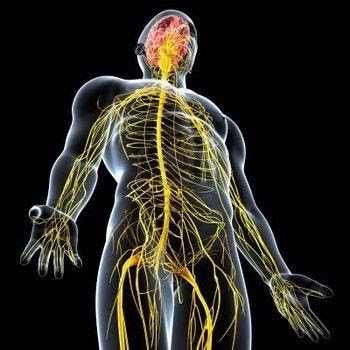
Doctors don’t know this and they often end up in the same boat as their patients…
—-Important Message From Our Sponsor—-
Here’s the REAL shocking reason why erections is ravaging men’s lives
Your brain-to-penis electric wiring is switched OFF.

This electrical malfunction is the ONLY reason that your member stays flaccid — even when you are intensely turned on visually or physically…
The truth is, Big Pharma doesn’t know how to fix this brain-to-penis “short circuit” so they peddle those toxic blue treatments.
This is why although you may experience a spontaneous, short-lived boner once in a blue moon – it never lasts.
And you become a slave to risky treatments if you ever want to have the chance of getting rocky again.
So I spent the past 7 years devoting my time to figuring out how to get to the ROOT of the problem and bypass this “short circuit” so you can reverse erections problems for good.
———-
Going flaccid and eating carbs
We are told that carbohydrates, particularly sugar, cause metabolic problems.
The more sugar and carbs you eat, the higher your blood sugar gets!
This leads to diabetes, insulin resistance and eventually any number of cardiovascular problems.
The problem is that everything you just read is wrong.
In reality, dietary fat is far more likely to cause you metabolic and cardiovascular problems.
But recently people have been swapping out carbohydrates and sugar for dietary fat.
This will have terrible consequences.
For example, low-carb, high-fat diets are associated with an INCREASE in atrial fibrillation — the common heart rhythm problem protects heart failure, stroke and other serious issues.

The research was carried out by a cardiologist at Sun Yat-Sen University in
Guangzhou, China.
The findings were presented to the American College of Cardiology.
We’ve been told that sugar and other carbohydrates cause metabolic problems.
These metabolic problems (like high blood sugar and type II diabetes) then cause cardiovascular disease.
If this is true then reducing carbohydrate intake should help to prevent cardiovascular problems like atrial fibrillation.
The study was designed to see if there was any effect of carbohydrate reduction on future diagnosis atrial fibrillation.
Does cutting back on carbs and sugar lower your risk of this cardiovascular problem?
“We set out to evaluate the association between carbohydrate intake and risk of incident atrial fibrillation in the ARIC study.”
The research contained information on over 13,000 people, both men and women.
The participants initially carried out a dietary questionnaire in the late 1980s.
The questionnaires were analyzed to see how much carbohydrate these thousands of individuals were consuming.
The study followed up with most of the participants an average of 22 years later.
This large, long-term study then assessed the effect of carbohydrate intake on the development of atrial fibrillation.
“The primary outcome was incident atrial fibrillation identified by ECG, hospital discharge notes for death certificates.”
One in seven people included in the study went on to develop atrial fibrillation at some point.
Carbohydrate intake was categorized according to a standard deviation metric.
With every decrease in carbohydrate intake there was an increase in atrial fibrillation diagnosis.
“The hazard ratios for atrial fibrillation associated with a 9% increase in carbohydrate intake was 0.82.”
In other words, increasing carbohydrates by about 9% led to about 18% lower risk of atrial fibrillation.
Increasing carbohydrate intake was associated with lower risk of atrial fibrillation.
Exactly the opposite of what we have been told regarding carbohydrates, metabolic disease, and cardiovascular issues.
Other studies have shown that increasing fat intake causes atrial fibrillation.
This study seems to show that decreasing carbohydrate intake is a separate risk factor for this common disease.
Usually people increase fat and decrease carbs at the same time — double trouble.
“Low carbohydrate diets were associated with an increased risk of incident atrial fibrillation, regardless of the type of protein or fat used to replace the carbohydrate.”
Atrial fibrillation is a common heart arrhythmia — it causes the heart to beat out of rhythm, too fast or too slow.
Atrial fibrillation can cause dizziness, fainting and shortness of breath.
More worryingly it seems to be an early sign of increased risk of stroke and heart failure.
A number of other studies show that atrial fibrillation is caused by energy problems — a lack of energy to the heart.
The heart is a massive electrical pump — the electrical impulses which cause the beating of the heart dependent energy produced by heart cells.
Heart cells need both carbohydrate and fat to produce energy efficiently.
Too much fat and too little carbohydrate can upset the energy balance in the heart causing atrial fibrillation.
Beware of the people promoting high-fat diets for health — the claims are simply not supported by science.
—-Important Message—-
Here’s why fat men live longer than skinny men
I’ve discovered “healthy fat” guys that have better blood sugar levels than skinny men…
They have stronger hearts, less inflammation, and can even perform better physically than skinny men.
Even erections is better for these “healthy fat” men compared to other guys.
So how do you know if you are healthy fat or sickly fat?
———-

U-Shaped Relationship Between Carbohydrate Intake Proportion And Incident Atrial Fibrillation
https://www.researchgate.net/publication/331612917_U-Shaped_Relationship_Between_Carbohydrate_Intake_Proportion_And_Incident_Atrial_Fibrillation